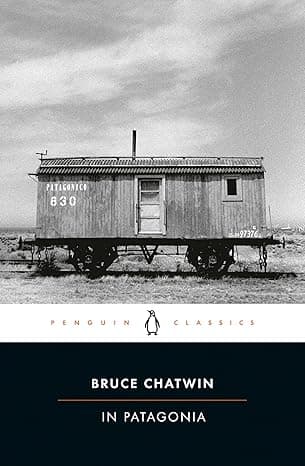
Book Stats
345
Upvotes
43
Downvotes
+302
Net Score
In Patagonia
by Bruce Chatwin
Description
Chatwin's lyrical account of his journey through Patagonia, blending travel writing with history, anthropology, and personal reflection in a masterpiece of the travel genre.
Bruce Chatwin's journey to Patagonia began with a childhood fascination with a piece of "brontosaurus skin" that belonged to his grandmother, later revealed to be from a prehistoric ground sloth. This quest to understand the fragment's origins becomes the framework for a travel narrative that transcends conventional genre boundaries.
Chatwin's approach to travel writing emphasizes stories and characters rather than systematic description, creating a impressionistic portrait of a landscape and its people. His encounters with Welsh sheep farmers, Argentine gauchos, and descendants of various immigrant communities reveal Patagonia's complex cultural history.
The book's structure mirrors the nomadic wandering it describes, with short chapters that function almost as prose poems. Chatwin's elliptical narrative style reflects his belief that truth emerges through accumulation of details and anecdotes rather than comprehensive explanation.
Chatwin's fascination with nomadism and travel provides the book's philosophical foundation. His theory that humans are naturally nomadic beings who have been corrupted by settlement and civilization runs throughout his descriptions of Patagonian landscapes and peoples.
The book's blend of historical research and personal encounter creates a unique form of travel narrative. Chatwin's accounts of famous explorers, outlaws, and eccentrics who found their way to Patagonia show how the region has long attracted people seeking escape from conventional society.
Chatwin's prose style is precise and economical, capable of capturing both vast landscapes and intimate human moments. His ability to find universal themes in specific places and encounters demonstrates travel writing's potential for serious literary and philosophical exploration.
In Patagonia established Chatwin as a major literary voice and influenced a generation of travel writers. It demonstrates how travel narrative can become a vehicle for exploring fundamental questions about human nature, cultural difference, and the relationship between place and identity.